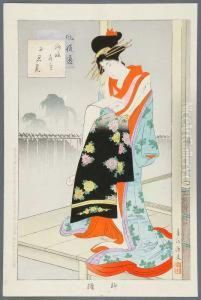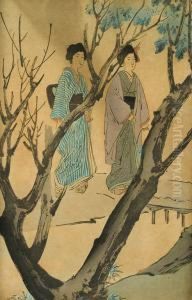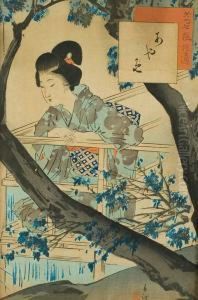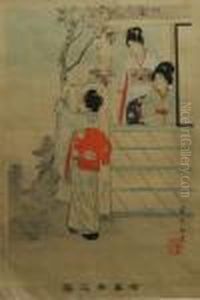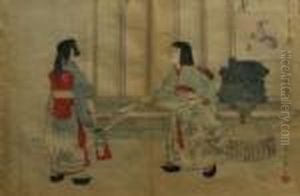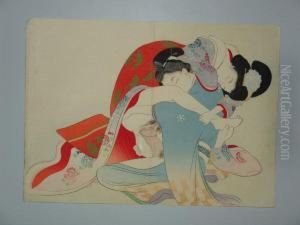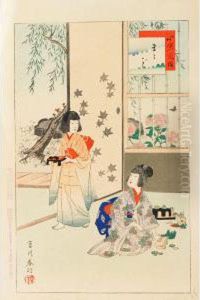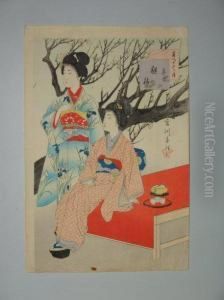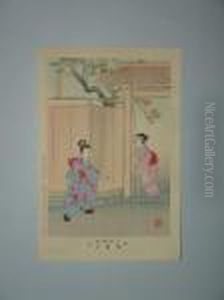Miyagawa Shuntei Paintings
Miyagawa Shuntei, born in 1873, was a Japanese woodblock print artist who made significant contributions to the genre of ukiyo-e during the Meiji era. His real name was Miyagawa Yasunosuke, and he was also known by the art name of Shuntei. Born in Tokyo, he began his artistic training at a young age under the guidance of his father, Miyagawa Choshun, who was also an ukiyo-e artist. Shuntei was further influenced by the works of his father's contemporaries, which helped him develop his distinctive style.
Shuntei became well-known for his bijin-ga (pictures of beautiful women) prints, which captured the grace and elegance of Meiji-era women. He was also recognized for his genre scenes that depicted the daily life and customs of people in Japan at the time. His prints were characterized by their vivid colors, fine detail, and often included elements of Western perspective, which was becoming increasingly popular in Japanese art during the period of Westernization.
In addition to single-sheet prints, Shuntei also produced a number of illustrated books and print series. His works were widely circulated and contributed to the international appreciation of Japanese art during the late 19th and early 20th centuries. Despite his success, Shuntei's life was cut short when he died in 1914 at the age of 41. Although his career was relatively brief, his artistic legacy continued to influence the development of ukiyo-e and the shin-hanga movement that emerged after his death. Shuntei's prints remain collected and admired today for their beauty and historical value.
